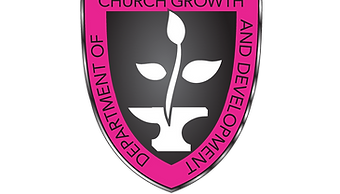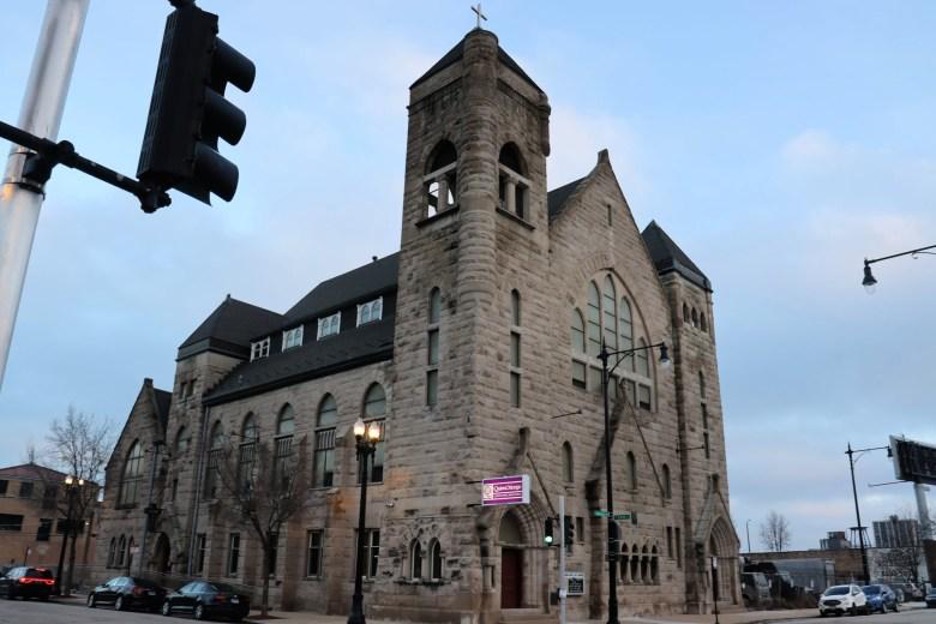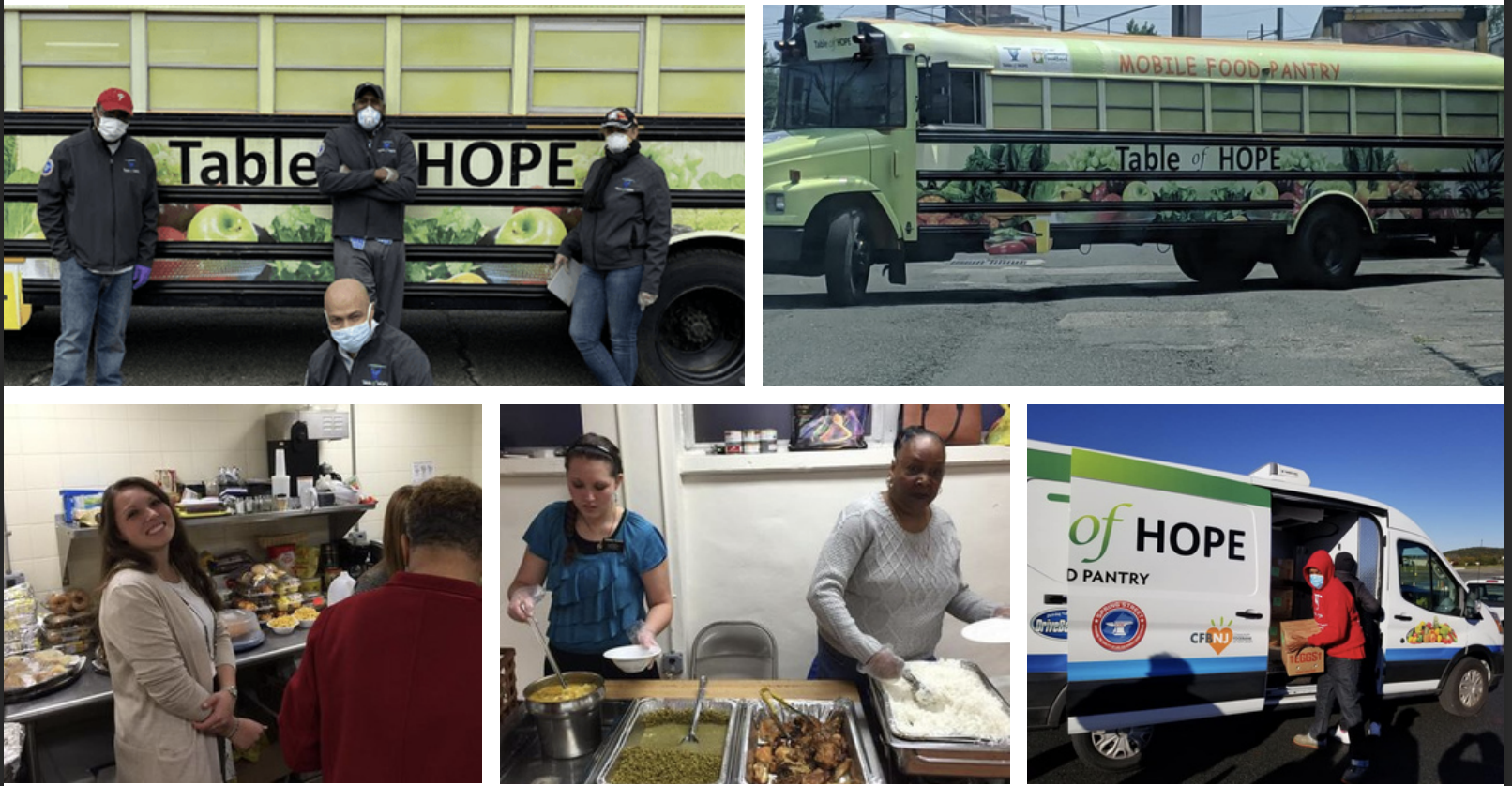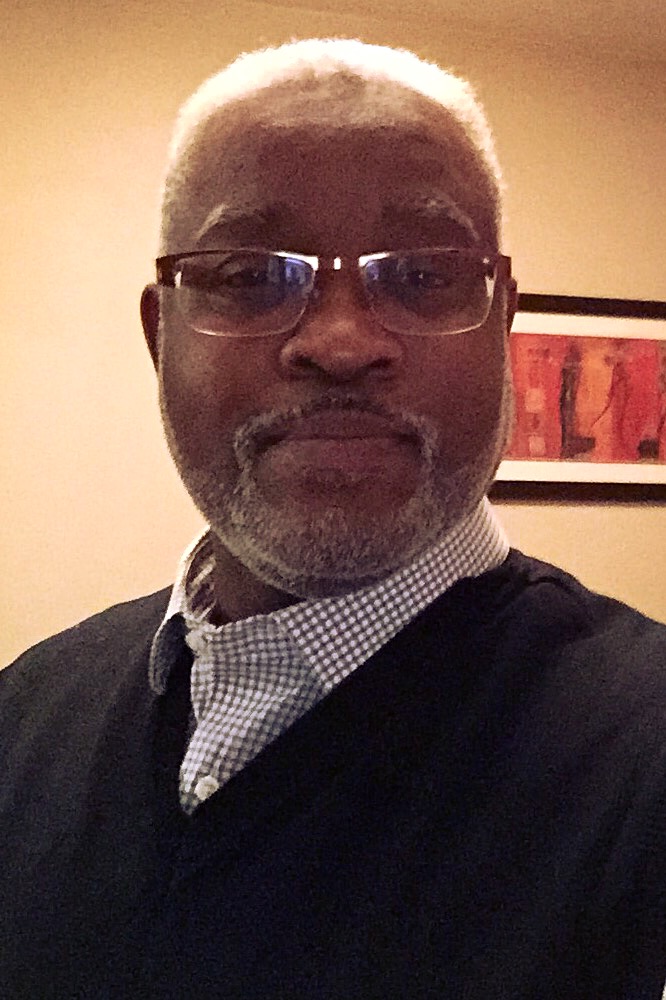By Dana Davis
With cheers and clapping hands in the background, Bishop Clement W. Fugh, Presiding Prelate of the 5th Episcopal District, Supervisor Alexia Butler Fugh, Presiding Elder Harold Mayberry of the Oakland-San Joaquin District, Presiding Elder Vernon Burroughs of the San Francisco-Sacramento District, the Rev. Robert Shaw, II, Senior Pastor of Bethel African Methodist Episcopal (AME) Church-San Francisco, and the Rev. Boaston Woodson, Jr., Pastor of Resurrection AME Church-Richmond, California, cut the ribbon to dedicate Anvil House in Richmond California.
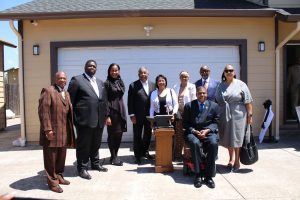
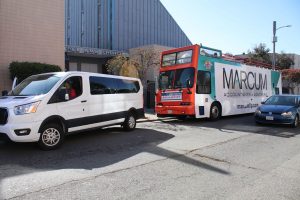
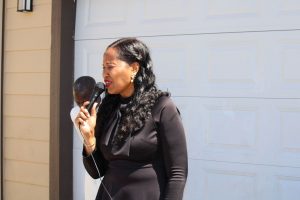
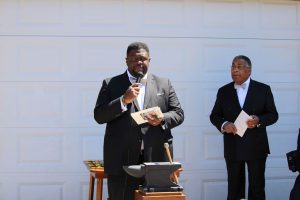
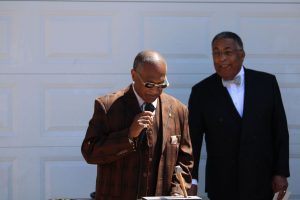
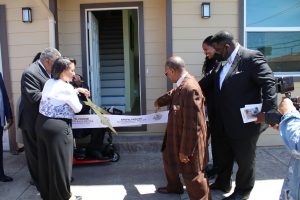
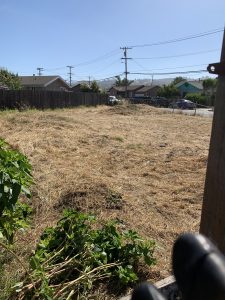
“This is beautiful. God is great!” exclaims Lady Mary Mayberry as she toured the house, which has been five years in the making. Anvil House, in partnership with Bethel AME Church-San Francisco and Resurrection AME Church-Richmond, is a transitional home serving men re-entering society from the penal system. Brother Bobby Sisk, Business Development Manager, Bethel AME Church, San Francisco, manages this collaborative ministry.
Echoing the sentiments of Lady Mayberry, Rev. Ann Champion Shaw, Executive Pastor of Bethel San Francisco, proclaimed it to be a “Beautiful day, family. We’re on a mission [here at] Anvil House. To God be the glory, great things God has done!”
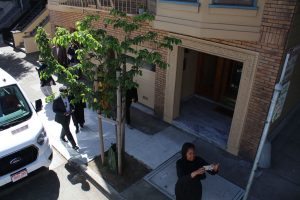
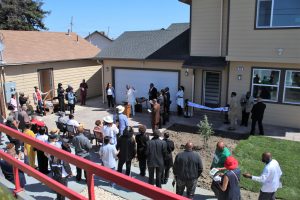
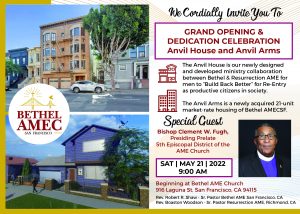
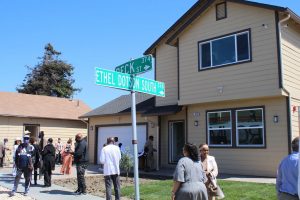
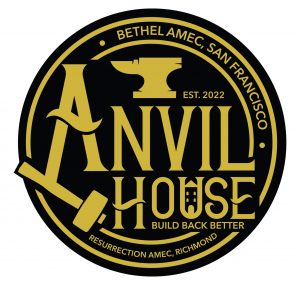
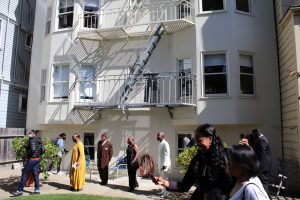

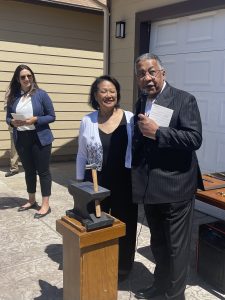
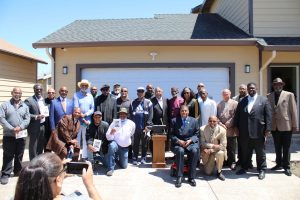
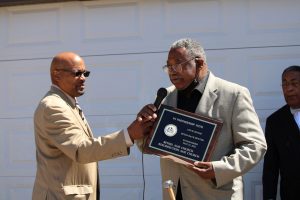
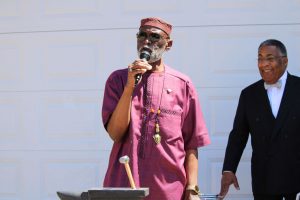

The day began at Bethel San Francisco under sunny, blue skies. Bishop and Supervisor Fugh, along with AME dignitaries, Bethel members, and friends, traveled to Anvil Arms– a recently purchased 12-unit, market-rate apartment building located a little more than a mile from the church. “[Acquiring the apartment building] was our way of stepping out on faith,” says Pastor Shaw while addressing guests in front of the building. “We’re still for affordable housing, but this just diversifies our portfolio. And with the proceeds, we fund other ministries for Bethel AME Church.”
Prior to the pandemic, church attendance was declining nationwide. According to an Institute for Family Studies analysis using the American Family Survey, in 2019, 45% of Black Americans attended religious service regularly, and by 2021, the number dropped to 30%. Low attendance had a financial impact. “In the current climate, investing like this is a way for churches to keep their doors open,” says Nikki Steady-Taylor, Bethel San Francisco’s Church Operations Manager, “because tithing and giving to the church is not what it used to be. So you have to think outside the box.”
Before heading to Richmond, the group took a quick walk through the building to view the beautiful back garden with lemon trees in large planters and strawberry plants bearing fruit lining the walkway.
At Anvil House, more guests gathered from local AME churches and outside organizations to hear about the opportunities for residents. The property, which will accommodate up to 20 men, consists of a five bedroom, three bath main house and a smaller two bedroom, with one auxiliary bath house. Steady-Taylor affirmed, “There will be training, including computer training offered.” In addition, residents will participate in training in “how to interview for a job, how to complete an application, counseling and other supportive programs to help [residents] re-enter society.”
Bishop Fugh thanked the volunteers during the dedication ceremony for their due diligence. “We got the chance to preview this setting yesterday, and we saw the persons who were really behind the scenes preparing for today. We salute each one of you for the job that you did,” said the Presiding Prelate.
Front and center in the ceremony were a hammer and anvil, the namesake of both properties. “Our founder, Richard Allen, who, prior to starting our church, started the Free African Society in a blacksmith’s shop [as] a self-help organization that helped African Americans in a particular time in our society,” says Pastor Shaw. “The first pulpit was an anvil. An iron block on which metal is placed to be shaped and forged. The anvil took what was not and brought it into existence.”
James Hooker, a Trustee at Bethel San Francisco during a presentation, became very emotional. “It’s only by the grace of our Father that we have an opportunity to take and do His will,” says Hooker through tears. “We’re here, step by step, to return them to our community…under civil and godly responsibility. Let us move forward to the task at hand. And let this be just the first step in carrying out God’s will.”
Following the blessing and dedication of Anvil Arms and Anvil House, those attending were asked to take the hammer and hit the anvil as a sign of their commitment to “Build Back Better”—the slogan for Anvil House and what the house represents.
According to the California Department of Corrections and Rehabilitation, California’s recidivism rate has averaged around 50% over the past ten years. Recidivism negatively impacts the community with victimization, the offender’s lives, and their families. Anvil House wants to make a difference. “We look at the crime rate now; we look at the homicides; we look at all the things that are going on with our young men—not just Black men, but all young men,” says Pastor Woodson. “I think it’s very important to have a place that can possibly turn that around in their lives. [This ministry is] not only important to the young men themselves, but it’s also important to the community to know that this could possibly make our communities safer.” Continuing with this same sentiment, Pastor Shaw said, “As men [are] present, they’re role models for other young men in the community. More men present, doing positive for the society can veer others away who might try to do ill will in society. And some people are just doing what they know to survive, so we’d like to show another way to be successful.”
The day ended with lunch at Oakland Restaurant Tribune, located in the iconic Tribune Building. Thoughts of the day lingered with gratitude to God and what Anvil House means to the community. “What a remarkable contribution to be able to invest in our Black men,” says Rev. Ann Shaw, “[knowing] that second chances can really happen. [It is remarkable] “for us to be able to provide that second chance, for God to give us those resources to give a second chance to another brother, [letting] them know that we’re here to him get back on the right footing and that he can still be all he wants to be in God.”
Pastor Woodson is looking forward to the first residents of Anvil House. “We’re hoping for no failures; we’re looking for success for all who enter Anvil House,” says Pastor Woodson.


